
Director of Photography, Filmmaker and Editor Hopi Chapman
Director of Photography, Filmmaker and Editor Hopi Chapman
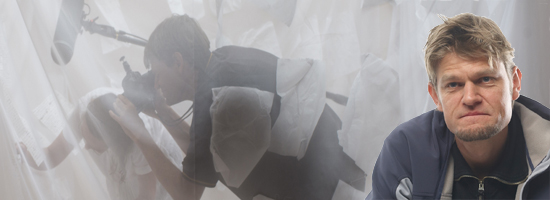
Christopher Robin Hopi Boomerang Chapman is his full name but he is normally called Hopi Chapman. We met Hopi on Facebook some years ago and later alive at the #RIO2016 Olympic Games. This Director of Photography, Filmmaker and Editor works in the South of Brazil at Flow Filmes. But his heritage is from Amsterdam, the Netherlands. He spoke very well english, so we invited him for our blog to listen to his adventures and projects in Brazil and elsewhere.
BB: How long have you been working in the TV business?
Hopi: Firstly I studied Cinema and TV at the University of Amsterdam. Then I worked as a trainee for a local TV station called Belissima TV, doing script, camera, directing and editing of short videos. Thereafter I worked two years for the Amsterdam TV station “AT5” as a cameraman for a sports program. As a freelancer I filmed and edited a lot of commercial videos, for the perfume chain Douglas but also a video about the national liberty day, and a music event in Amsterdam visited by fifty thousand people.
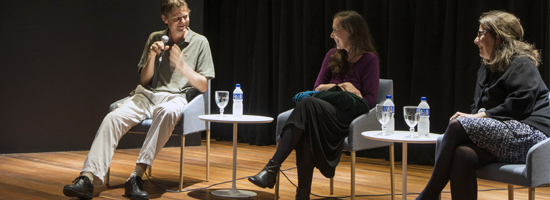
Hopi commenting a documentary at the screening 2014
I have been In Brazil since 1999. For one year I worked as a cameraman and editor for a fashion program and an extreme sports program. Then I worked for two years for an advertisement agency, making commercials, filming, editing and directing. Here I learned a lot about how advertisement works. I made a lot of political advertisements too, participating in six political campaigns as a cameraman and an editor. And I started to give editing lessons in Adobe premiere and After Effects. The last 7 years I made a lot of documentaries funded by the state and the Brazilian government.
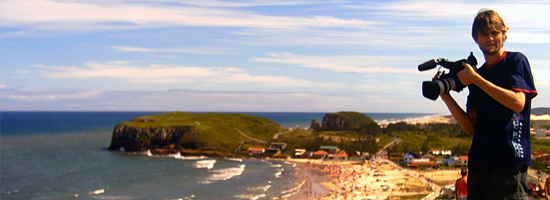
Making a film for an organization of bankworkers and their vacations in the south of Brazil, RS, SC, PR and SP
BB: Is communicating in the english language important for your job?
Hopi: Working in Brazil, mostly I do not use English although I did a few important jobs with Dutch and American people when English was fundamental to do the job. Speaking English is important in our business.
BB: On location at international events, is it difficult for you to talk with Brazilians ?
Hopi: It is not difficult for me to speak with Brazilians because I have lived for 19 years in Brazil. I speak Portuguese very well.
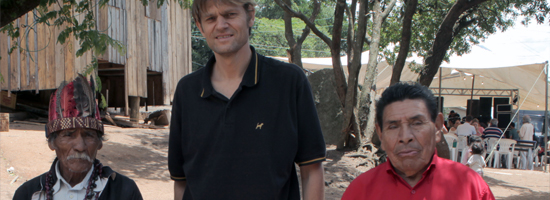
BB: Did you see a growth past years in international events in Brazil?
Hopi: Yes I saw a growth of international events like the Olympic Games and the FIFA World Cup soccer.
BB: What did this mean for your business?
Hopi: I worked on both events. During the World Cup I worked for a Dutch television company in Porto Alegre and the Olympic Games in Rio de Janeiro for Connecting Media who produced live webcasts for Facebook USA. It was great to be part of a crew that promotes these events to a lot of people.
BB: How was your job at the Olympic Games 2016 in Brazil?
Hopi: It was a nice job and great experience working together with Connecting Media for a company like Facebook and NBC. We had an international crew of Brazilian, American, Australian and Dutch crew members and it worked very well together.
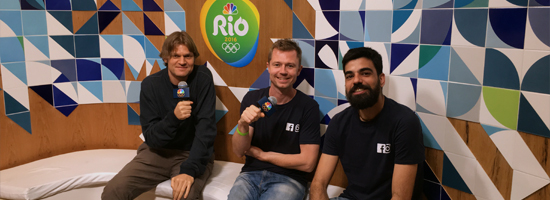
Camera for live webcast facebook at Olympic Games 2016 for ConnectingMedia
BB: Do you work besides Brazil also in other regions on the planet or do you have plans for that?
Hopi: I worked in a lot of places in Brazil, Uruguai, the Netherlands, Germany and Spain but for now I have no plans to work in other countries.
BB: Are there any surprising challenges you had at events past years?
Hopi: At the Olympic Games we had the challenge to transmit by Facebook interviews with atletes, comentators and special guests. And it went great. One challenge I have this year is making a tv series for TV Brasil and university tv channels, called Culturando. It is about young people of the periphery who work together in groups, creatively and productively.
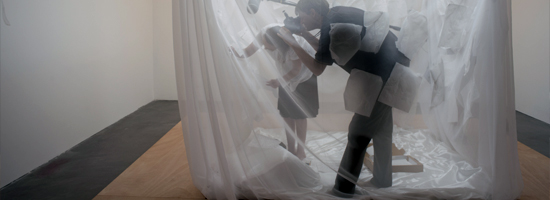
Filming and directing a documentary about the painter Karin Lambrecht
BB: You edit on Final Cut Pro. Do you still use it or did you update to Final Cut Pro X, Adobe Premiere, Davinci Resolve or AVID?
Hopi: I was only editing on Final Cut Pro for the last 10 years, but this year, after upgrading, my Mac did not accept it any more. I am using and Premiere CC a lot and I like it very much. It exceeded my expectations.
BB: Do you plan to learn other solutions, for example AfterEffects, Fusion or Apple Motion?
Hopi: I also use AfterEffects and give lessons in both After Effects and Premiere CC nowadays.
BB: Did you attended Exhibitions this year like SET EXPO, Church Expo, IBC or AES Brasil?
Hopi: This year I went to the Rio Content Market exhibition. It is a good opportunity to sell programs, documentaries and content to Brazilian and foreign TV Stations. There are people from all over the world.
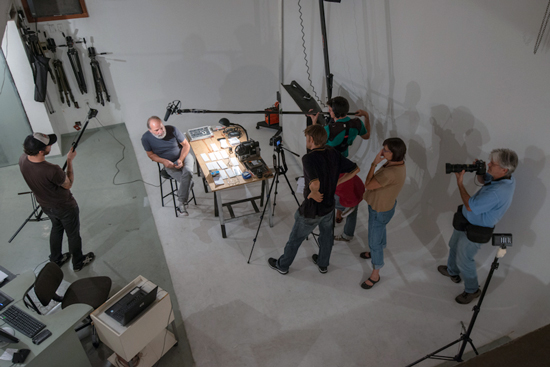
Directing and filming a documentary about a group of artists, called Nervo Óptico that is shown on channel Arte 1, TV//RS and TV Justiça
Productions made by Hopi Chapman - Flowfilms:
Kaingang Wisdom
This documentary (Full HD, 26 min, 2015) shows the lifes of two ninety-year-old kaingang Indians, one living in the city and the other in the countryside. (Produced by Flow Films)
Nervo Óptico, in search of a new eye (Trailer)
This documentary (Full HD, 26 min, 2013) shows that in Porto Alegre during the seventies a group of artists was thinking of art in a different way. The film is directed by Karine Emerich and Hopi Chapman. (Financed by the State Ministry of Culture and Pró-Cultura of Rio Grande do Sul)
Julio Plaza, the poetic and the political
This documentary shows the art of Julio Plaza. Directed by Hopi Chapman and Karine Emerich (26 min. Full HD, 2012)
Contact info
Hopi Chapman - Flowfilmes
Rua João Alfredo 312 cj. 616
90050-230
Porto Alegre/RS
Flow Films: Youtube - facebook - Flowfilms facebook page - Website
Like us if you want on Facebook, follow us on Twitter and Subscribe to our YouTube channel.
Brazilian TV in 2016 and in a near future
Brazilian TV in 2016 and in a near future
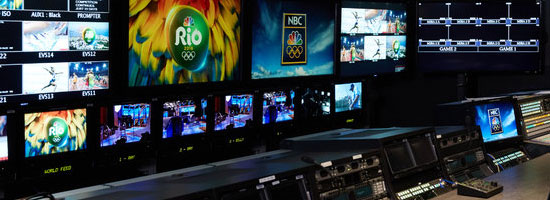
We are in the end of 2016 with a very interesting balance regarding the evolution in TV, especially in the case of public TV in Brazil. The changes of a new generation in the broadcasting business began with the switch-off. Begining with Rio Verde (GO) and the capital of Brazil (Brasília - DF) operating with the 100% digital signal, releasing the 700 MHz band for the implementation of 4G as well.
Another legacy that Brazil showed for the whole world was the Rio 2016 Olympics. Many investments were made in one of the biggest events in the world, thanks to television and Internet broadcasting capacity for billions of people.
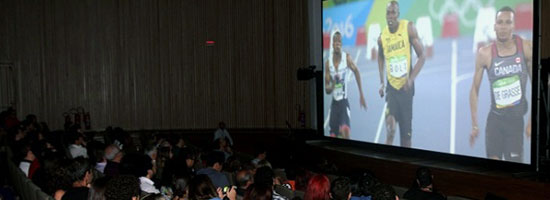
In this year, we were able to test the first transmission in 8K-UHD technology with an exhibition at Museu do Amanhã at Rio, between August 5 and 20, on a 300-inch screen, by optical fiber (uncompressed) and terrestrial (compressed). The signal was generated in 8K by the OBC (Olympic Broadcasting Services) in Jacarepaguá.
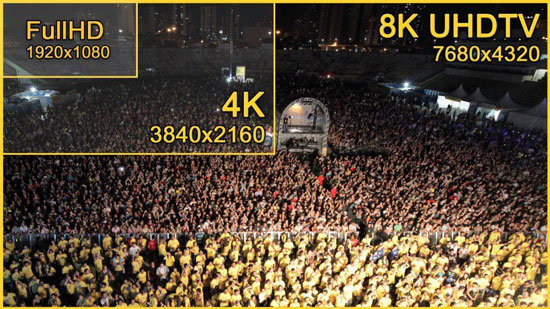
With the partnership of the Japanese broadcaster NHK (already targeting the Olympics in Tokyo by the year 2020) the signal was transmitted on channel 56 UHF (Center frequency of 754 MHz) directly from Mt. Sumaré on a transmitter of 660 W (H) + 660 W (V) in the standard ISDB-T, multiplex capacity of 36.72 Mbit/s, signal bit rate of 35 Mbit/s with HEVC 50 frames/s, 8 bit/px, with E-AC-3 5.1 as standard audio encoding.
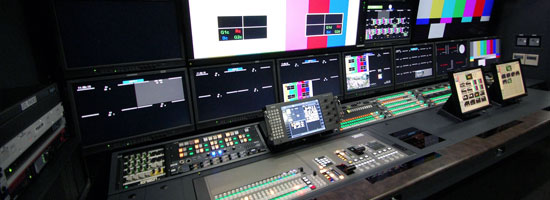
The power of TV in Brazil has shown, in an exemplary way, a surprising quality and use of new technology. One example is Grupo Globo that made 16 SporTV channels available in DTH and through the web with a historical coverage.
Even though we’re still on the road to Full-HD terrestrial broadcasting, 4K and 8K can show the ability to make the best way we watch content, through new experiences and future UHD standards with technologies such as High Dynamic Range (HDR) HEVC (High Efficiency Video Coding) and HFR (High Frame Rate).
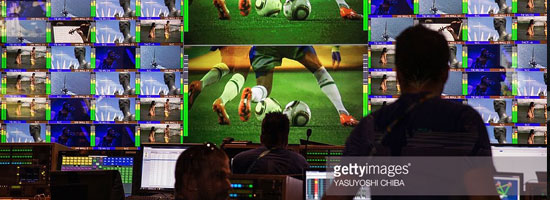
4K terrestrial transmission is already a reality in South Korea. In Japan, 8K transmission tests are in na advanced level. In Brazil, broadcasters are interested in the system, but they are concerned about the use of spectrum for Ultra HD transmissions.
So the broadcast market is also gaining, with the immersion of new technologies, with cameras of greater capacity, bigger and bigger televisions with more quality and functions, higher signal processing, and it is worth noting a special highlight for the audio with 22.2 channels, making the experience more immersive and as close to reality as possible.
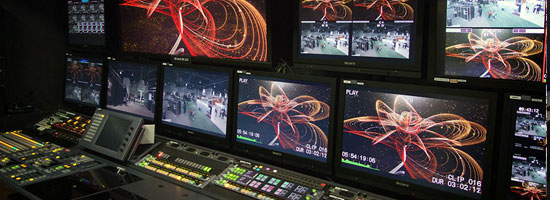
Watching television will become a differentiated experience of what we are used to know, whether via optical fiber, terrestrial or satellite. It is worth mentioning that the film industry also already uses 4K system in its productions and this integration with television extrapolates the business, being materialized in the technology. Very soon, we can say that there will be no difference between the production for TV and Cinema, in technological aspects. So it is possible to say that in a brief future we will be in an entertainment universe with incredible dimensions and possibilities.
Like us if you want on Facebook, and follow us on Twitter
UPDATE september 29th 2017: Brazil speeds up DTT STB delivery ahead of Rio switch-off
Tags: Brazilian TV, 2016, switch-off, Rio 2016, Olympics, 4K, 8K, Tokyo 2020, broadcasting, Ultra HD, future.
In this video you can view some #BehindTheScenes brought to you by panasonic:
We would like to thank Marcel Almeida for writing for us.
More info you can find on his LinkedIn: br.linkedin.com/in/marcelmg77/en or follow him on Twitter @marcelmg77
Like us if you want on Facebook, follow us on Twitter and Subscribe to our YouTube channel.
mentioned:
Rio 2016 : Website - facebook - Twitter - YouTube
Tokyo 2020 : Website - facebook - Twitter - YouTube
NHK : Website
OBC : Website
TV Globo/SporTV : Website - facebook - Twitter - Videos
Rodolfo Souto , being a tech guy at TV Globo
Rodolfo , being a tech guy at TV Globo
We met Rodolfo Souto some years ago at the Formula 1 at Interlagos, São Paulo. He was responsible for some cabling between the international Broadcasters and the Host TV Globo. In their booth at the TV compound we found Rodolfo with his head in a rack. There was a ‘small problem’ in which he had to solve’ he said. The next morning we spoke to him again, he told us he re-cabled the whole rack overnight to solve the problem. A Die-Hard technician this Rodolfo. And…. he spoke very good english. so we invited him for our blog.
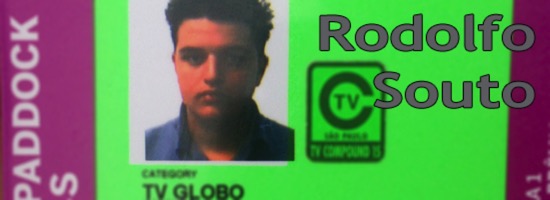
BB: Can you tell us about yourself and your job at - External events São Paulo?
Rodolfo: My Name is Rodolfo, and I`m a Technician of TV System. I am working for TV Globo since December 2006, almost 10 years now.
BB: Tell us about the company TV Globo - External events São Paulo and how long does TV Globo - External events São Paulo exist?
Rodolfo: The External team of Events in São Paulo exists since 1975 i think. The first soccer game that the External events team broadcasted was with only 3 cameras, the signal output were a Analog MicroWave route between the Soccer-Stadium and TV Globo in São Paulo. The guys that worked on that production time are still very proud of what they achieved those days.
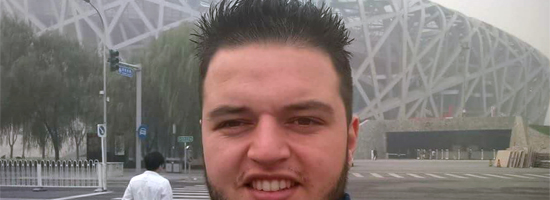
BB: Did you see a growth past years in working at international events for you in Brazil?
Rodolfo: Yes a lot. I Worked at productions like the Confederations Cup, the World Cup in 2014 and this year i will be at the Olympic Games in Rio de Janeiro. Aldo, i worked on the last 5 Formula 1 GrandPrix’s at Interloagos in Brazil.
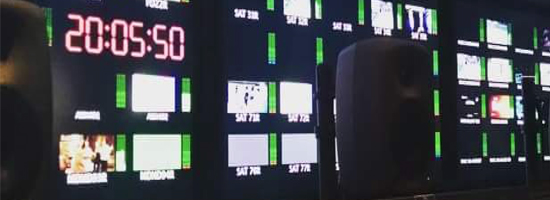
Our OBvan at TV Globo is one of the top of Latin America. I can see that after all this years Broadcast production are getting bigger and harder to achieve in the technical sense. I like that, it makes me feel good when i am working on an International Event, meeting colleagues from all over the planet and being able to talk with them.
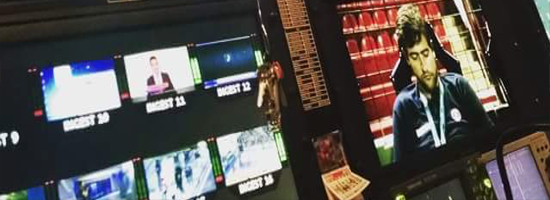
BB: What this growth ment for you and your colleagues at TV Globo - External events?
Rodolfo: TV Globo has 5 department: Rio de Janeiro, São Paulo, Belo Horizonte, Brasilia and Recife. When we have something new coming for us, normally it starts in Rio and São Paulo. So we get a lot of time to learn and understand the new technology, equipment and solutions. This is very well arranged at TV Globo.
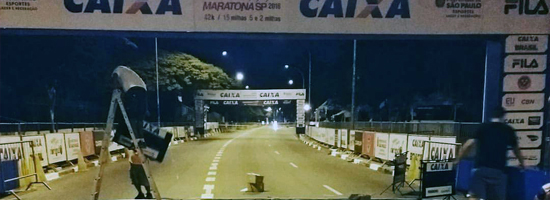
BB: Do you work besides Brazil also in other regions on the planet?
Rodolfo: Yes i did. In 2014 i went to China and also Singapore. The Brazilian national team played 2 friendly games over there. I spent even 12 days on this location job. It was amazing meet the other side of the world. In 2015 i went to Colombia to broadcast a Corinthians`s game at the Libertadores championship. That was awesome too. Speaking English is very important on International events. It was because of the english that i got this opportunity to go to China and Singapore. Knowing the english language did give me this opportunity.
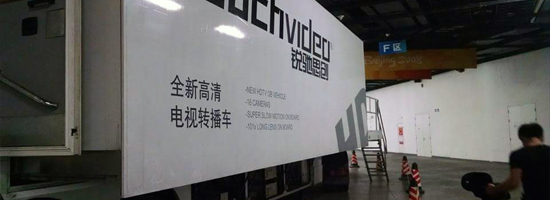
BB: On location at international events, is it difficult for you to communicate with Europeans, Americans, Australians or LATAM countries?
Rodolfo: Yes, with the LATAM’s i try to speak in Spanish but especialy with the Argentines it is hard. They speak to fast. With the Europeans it is alright, they speak very well english. It is only boring for me when they speak their own language. I do not understand anything they speak than. I worked with Australians at the World Cup in Sao Paulo, that was ok too. At the Formula 1 i speak a lot with the British guys. For me it is kind hard, to understand them. It is because i studied American English, so it is hard to get used to understand their they speak english, but in the second day everything goes already better. Every time you learn.
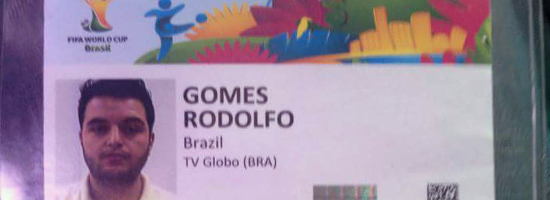
BB: How do you see your job due to Olympic Games 2016 in Brazil?
Rodolfo: It will be awesome for sure. We will never see an event like this in Brazil soon again. I am very excited to be part of this event. I will be working at Arena Corinthians in São Paulo working for the OBS. It will be unique experience, my expectation are the best you can imagine.
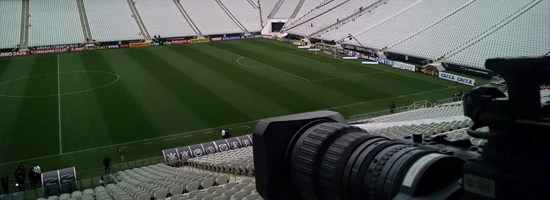
BB: Is there any surprising challenges you had at events past years?
Rodolfo: No, not really. We always have something new popping up every day in this kind of job. After some years i got used to all types of bad and good surprises. The challenges make us better and stronger. Things that i learned on International events i carry with me at every other production i do, in Brazil and abrought.
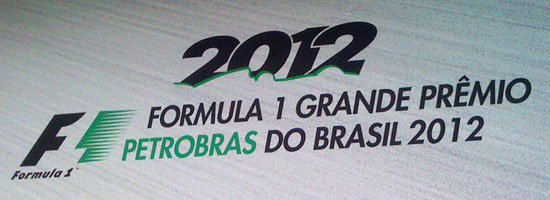
BB: What surprising challenges you think you will have at the Olympics this year?
Rodolfo: I think that we will have all the possible surprises thinkable. We will be the Host Broadcaster at the Olympic Games. All the broadcasters in the world will come to us to ask for some signals or assistance. A lot to solve and help fur sure.
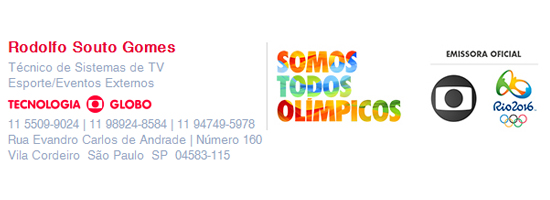
Video Olympic Games (Official Theme) - Rio 2016:
Like us if you want on Facebook, follow us on Twitter and Subscribe to our YouTube channel.
mentioned:
Globo TV: website